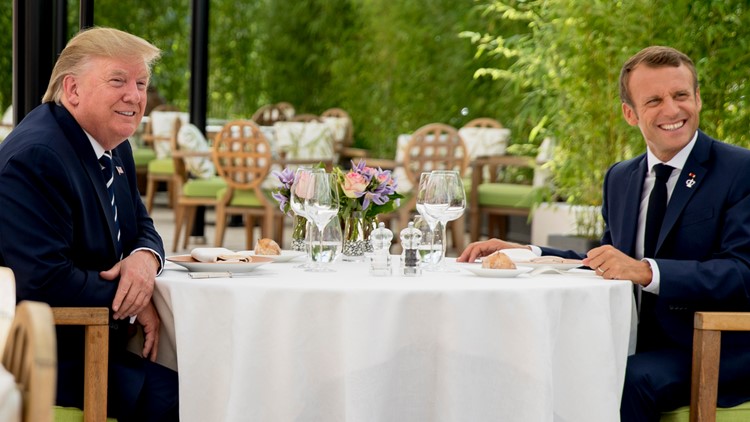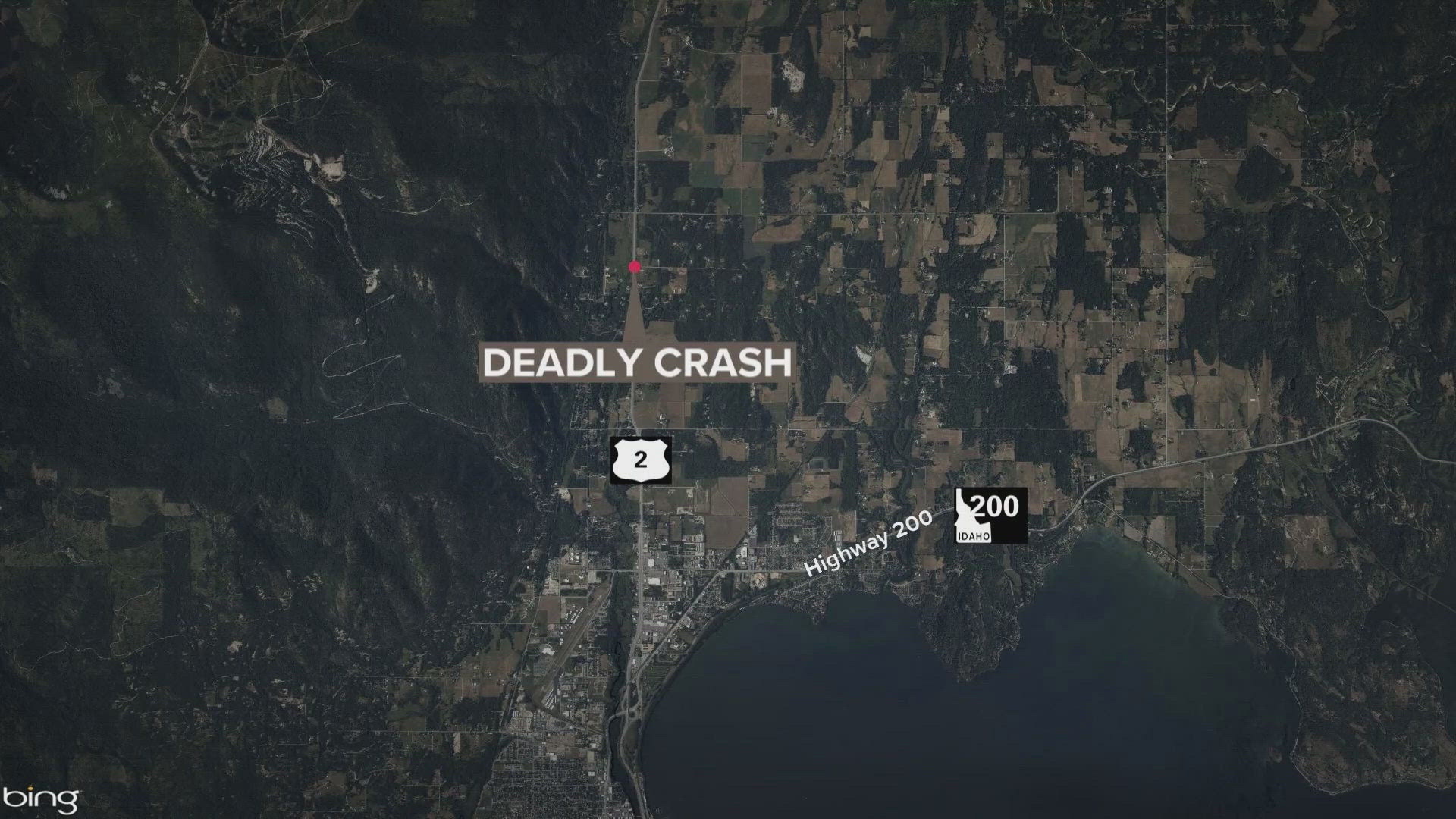BIARRITZ, France — The posturing by leaders of the G-7 rich democracies began well before they stood together for a summit photo.
French President Emmanuel Macron, the host, cornered Donald Trump at the American leader's hotel with an impromptu lunch invitation. It was something of a power move by Macron, who pushed the Amazon wildfires to the top of the agenda at a summit Trump hoped to use to persuade allies they can avoid economic disaster by following his low-tax, low-regulation mantra.
European Council President Donald Tusk and British Prime Minister Boris Johnson traded barbs over who would go down in history as "Mr. No Deal" and take the blame for a Brexit departure from the European Union that threatens to go off the rails.
And nearly everyone kept a trade threat close at hand.
Just before boarding Air Force One for France, Trump tweeted yet another threat of new tariffs on French wine in retaliation for France's digital services tax. Macron greeted him warmly as a "very special guest," but had already called for an end to the trade disputes that he said threatened global growth.
Tusk said the three-day summit in the seaside resort of Biarritz would be "a difficult test of the unity and solidarity of the free world and its leaders." For a meeting where the disputes traditionally happen in private, the results were looking grim.
Even as Tusk, who presides over the council of leaders of the 28-member European Union, said the last thing the bloc wanted was a trade dispute with the United States and called for "an end to trade wars," he promised to retaliate against U.S. products if Trump carries through on the wine tariffs.
Macron has said the summit would not end with a final statement, as he had little expectation that Trump will agree to anything about fighting climate change even as the issue shot to the top of the agenda with the widespread fires in the Amazon . He already rejected Trump's request to let Russia rejoin the group five years after being expelled over its seizure of Crimea. And he is trying to hold together the European line on the Iran nuclear deal over U.S. objections.
"We have disagreements, and at times there are caricatures. But I think that the great challenges that we have: Climate, biodiversity, the technological transformation, the fight against inequality, this global insecurity, we will only resolve them by acting together, by reconciling," he said.
But sitting across from Trump ahead of their unscheduled two-hour lunch, Macron said he hoped to lead Europe toward lowering taxes, in an acknowledgement that fiscal stimulus could blunt a coming recession. He warned against escalating trade disputes, even after threatening to block an EU trade deal with several South American states, including Brazil over the Amazon fires.
Ireland joined in the threat. German Chancellor Angela Merkel disagreed, with her office saying Saturday that blocking the deal with the South American trade bloc, Mercosur, won't reduce the destruction of rainforest in Brazil, although she backed Macron's proposal to discuss the fires at the summit.
At last year's summit in Charlevoix, Canada, Trump left early and repudiated the final statement in a tweet from Air Force One. This year, Macron said, there will be no final statement.
Instead, diplomats say Macron could issue his own summary of the discussions.
Lowered expectations are nothing new for the G-7, but this year's intent seems to be just to avoid diplomatic catastrophe, salvage the possible, and show voters that their leaders have a role on the world stage. One force that could push leaders together is their joint vulnerability to an economic slowdown, especially the ones who, like Trump, are facing elections in the next year or two.
Disputes on trade have unsettled the global economy because businesses don't know where tariffs will be imposed or what the trading system will look like in a world that has become dependent on supplies of materials, parts and goods flowing through intricate cross-border supply chains.
Given lowered expectations the most important summit outcome would be "to do no harm," said Holger Schmieding, chief economist at Berenberg Bank in London. "Have a discussion without a bust-up, no repeat of Charlevoix, please."
A "dream result" would be the EU, U.S. and Japan agreeing to jointly tackle their trade issues with China, but "with America-First Trump that seems too much to hope for," he said.
All eyes will be on the dynamic between Trump and Johnson , two figures who relish the unpredictability they have sown. Johnson is under intense pressure to pull Britain out of the EU and many see his relationship with the United States as key.
"My message to G-7 leaders this week is this: the Britain I lead will be an international, outward-looking, self-confident nation," he said.
Despite the barbs, Johnson and Tusk sat across a small table with Macron, Merkel, and Italy's caretaker leader Guiseppe Conte, who was its prime minister until just a few days ago.
Conte is not the only G-7 leader in a weak position.
Merkel is in her last term of office. Canadian leader Justin Trudeau, up for re-election this fall, is at the center of a political scandal . Macron himself is deeply unpopular at home, and the yellow vest protesters who have plagued him since last year have followed him to Biarritz. Only Japan's Shinzo Abe, who overwhelmingly won re-election earlier this summer, appeared solid back home.
And even Abe faced his own diplomatic tangle, as South Korea backed out of an intelligence sharing deal with Japan over a trade dispute — and over U.S. objections.
Well outside Biarritz, police fired water cannon and tear gas at about 400 anti-capitalist protesters blocking roads in Bayonne. Earlier Saturday thousands of demonstrators marched peacefully from the area to the Spanish border to demand more action against climate change and economic inequality.
Biarritz itself was in a subdued mood after being locked down during the final week of the summer break for most of France. The appropriately named Bellevue congress center where the leaders gathered Saturday night overlooks the carefully raked sandy beach beloved by surfers and swimmers alike. It was empty.
___
Geir Moulson in Berlin and Danica Kirka in Biarritz contributed.



